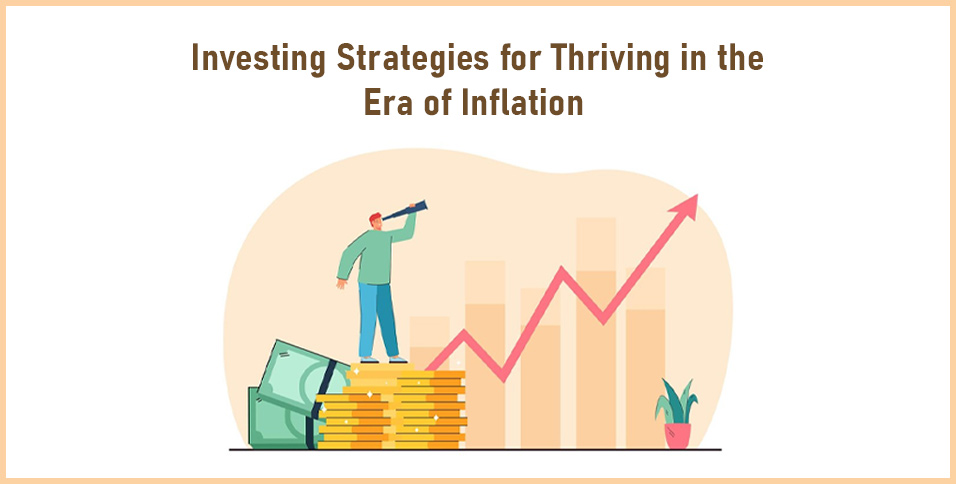In recent years, the economic landscape has shifted dramatically, marked by rising inflation and unprecedented monetary expansion. In response to this new reality, investors are seeking innovative strategies to protect their wealth and ensure financial growth. One such approach gaining traction is Brrrr Investing—a strategy that capitalizes on the current economic climate to maximize returns. This article explores the principles of Brrrr investing, the challenges posed by inflation, and effective strategies for thriving in this evolving environment.
The Rationale Behind Brrrr Investing
Brrrr Investing derives its name from the sound of money printing, often associated with central banks’ policies during times of economic crisis. The term captures the essence of continuously acquiring cash flow-producing assets in an environment where traditional investments may falter due to inflation. With central banks worldwide engaging in monetary expansion—expanding the money supply to stimulate economies—investors may find themselves grappling with the erosion of purchasing power.
Brrrr Investing encourages individuals to create a portfolio of assets that generate consistent cash flow, which can be reinvested to combat the effects of inflation. The underlying philosophy is simple: in a world where money is being printed at an unprecedented rate, acquiring and holding tangible assets is a way to safeguard and grow wealth.
Understanding Inflation and Its Impact on Investments
Inflation, defined as the rate at which the general level of prices for goods and services rises, erodes the purchasing power of money. In an inflationary environment, each dollar buys fewer goods than it did previously. This reality presents a unique challenge for investors, as traditional cash savings lose value over time.
Additionally, inflation affects various asset classes differently. Stocks, real estate, and commodities may perform well in inflationary periods, while fixed-income investments like bonds struggle. As a result, understanding how inflation impacts different investment vehicles is crucial for Brrrr Investing.
Key Principles of Brrrr Investing
1. Focus on Cash Flow: The cornerstone of Brrrr Investing is the emphasis on acquiring income-generating assets. Real estate, dividend-paying stocks, and businesses with strong cash flows are ideal candidates. By prioritizing cash flow, investors can create a self-sustaining system where returns can be reinvested to counteract inflation.
2. Diversification: In uncertain economic times, diversification becomes essential. Brrrr Investing encourages spreading investments across various asset classes—such as real estate, stocks, and commodities—to mitigate risk. A diversified portfolio can provide greater stability and resilience against market fluctuations.
3. Leverage: Utilizing leverage strategically can amplify returns in a low-interest-rate environment. By borrowing to invest in cash flow-generating assets, investors can increase their potential returns while benefiting from the appreciation of those assets over time. However, it is essential to approach leverage cautiously, as excessive borrowing can lead to financial strain.
4. Investing in Real Assets: During periods of inflation, tangible assets—such as real estate, precious metals, and commodities—tend to hold their value better than cash or fixed-income securities. Brrrr Investing advocates for including these real assets in one’s portfolio, as they can act as a hedge against inflation while also providing consistent cash flow.
5. Continuous Learning and Adaptation: The economic landscape is fluid, and what works today may not work tomorrow. Brrrr Investing requires investors to stay informed, adapt their strategies based on changing market conditions, and continuously seek opportunities for growth.
Strategies for Thriving Amid Inflation
1. Investing in Real Estate: Real estate is often considered a safe haven during inflationary periods. Property values typically rise alongside inflation, and rental income can adjust with inflation, providing a hedge against decreasing purchasing power. Investors can explore rental properties, real estate investment trusts (REITs), or commercial real estate to generate cash flow.
2. Dividend Stocks: Investing in dividend-paying stocks offers a dual benefit: potential capital appreciation and regular income. Companies with a history of increasing dividends can provide a reliable income stream that keeps pace with inflation. Look for sectors that historically perform well during inflationary periods, such as utilities and consumer staples.
3. Investing in Commodities and Precious Metals: Commodities like gold, silver, and oil typically appreciate during inflation, making them valuable additions to a diversified portfolio. Commodities can serve as a hedge against inflation, as their prices often rise when the purchasing power of currency declines.
4. Peer-to-Peer Lending and Crowdfunding: These alternative investment avenues allow individuals to invest in businesses or real estate projects, often with attractive returns. By participating in peer-to-peer lending platforms or crowdfunding opportunities, investors can earn interest and income that outpaces traditional fixed-income options.
5. Stay Agile: In a rapidly changing economic environment, maintaining flexibility is critical. Investors should regularly review their portfolios, assess the performance of their assets, and be prepared to pivot as necessary. This agility enables them to capitalize on emerging opportunities and mitigate risks effectively.
Financial Success
Brrrr Investing represents a proactive approach to navigating the challenges of inflation and monetary expansion. By focusing on cash flow-producing assets, diversifying portfolios, and leveraging opportunities, investors can safeguard their wealth and thrive in this evolving economic landscape. Understanding the principles of Brrrr Investing empowers individuals to make informed decisions in a world where traditional strategies may no longer suffice. In this era of economic uncertainty, adopting a growth mindset and embracing innovative investment strategies will be key to long-term financial success.















